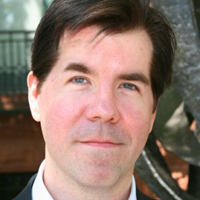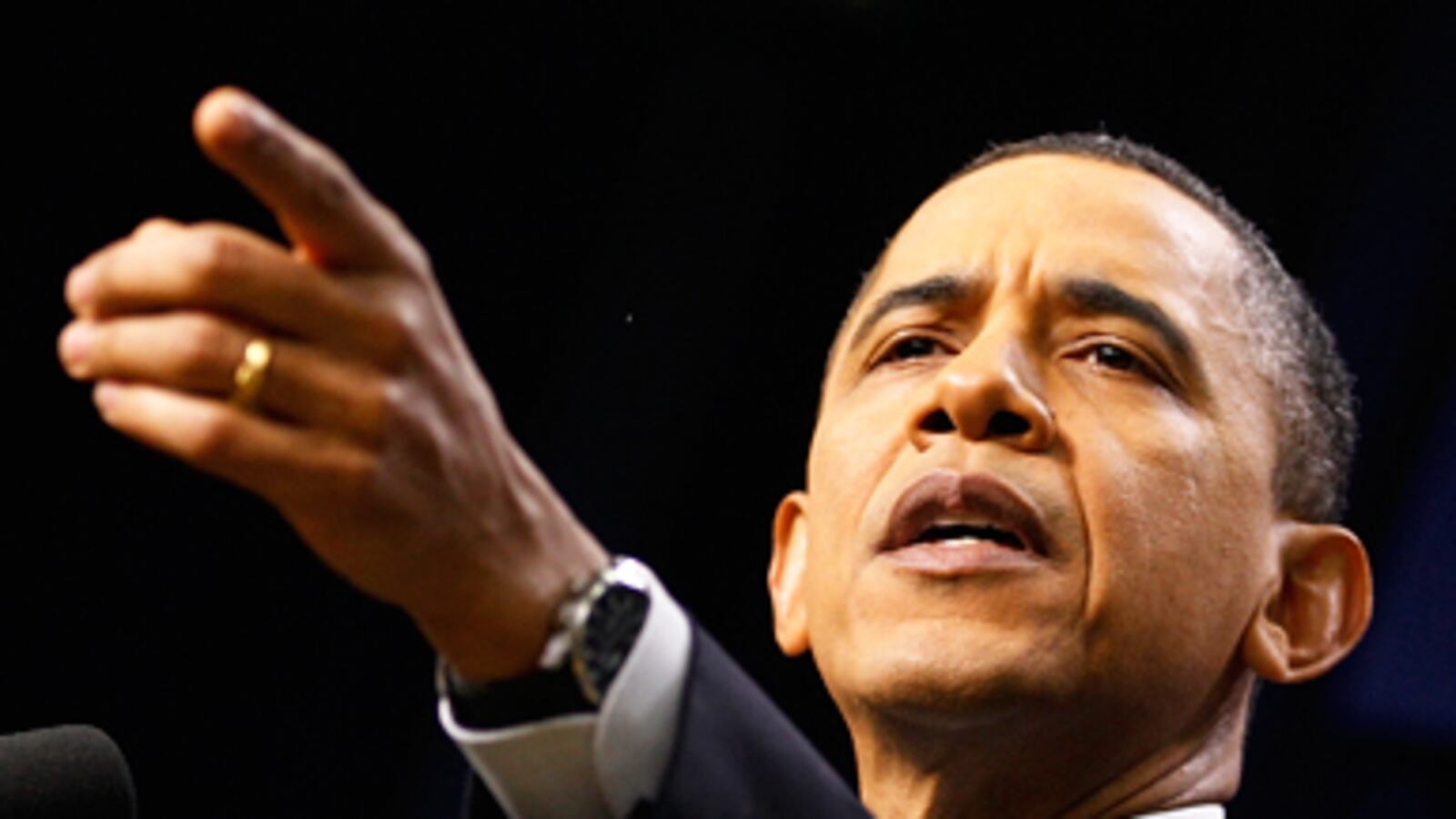In the next few days, we are told, President Obama is planning to deliver a major speech on the historic turmoil in the Middle East. I suppose it was nice of him to warn us.
As someone who sat in the Bush White House and watched candidate Barack Obama’s oratorical skills with respectful awe, I find myself bewildered. And I suspect I am not the only one who has found Obama’s presidential rhetoric to be… well, underwhelming, to put it politely. During the entire health-care effort, the president delivered one unremarkable speech after another, including a much-hyped “landmark” address to the Congress that everyone now has forgotten—thousands of words drafted, vetted, and fact-checked with the result being that Obama actually lost support for his program.

This year’s State of the Union speech (less than a month ago, mind you) is already a blurry historical asterisk. (Something about Sputnik? Who remembers?)
We can of course go on with the forensic felonies being committed: the reluctance, if not determination, to avoid elegant rhetoric… the refusal to make an above-room-temperature case against political opponents and, even when that is attempted, to stick with them long enough for them to register… the toothless warnings to other nations… the joyless pronouncements from the presidential podium. It is time to face facts. The leader who Americans thought would be our next Henry Clay has become, rhetorically at least, what this year’s Academy Awards audience found in James Franco: a cringe-inspiring disappointment.
Nowhere has the deficiency been more painfully on display than with regard to the Middle East. At a time when the United States, the most powerful democracy in the world, should be eagerly welcoming, even prodding, the aspirations of millions trapped in tyranny, America has assumed the role of Buzz Killington.
At one point during the crisis in Egypt, it almost sounded like the über-sedate Obama was on the side of the despised Hosni Mubarak—who the president variously called a “longtime ally” and his “counterpart”—while millions of Egyptian protesters, who were risking their very lives in calling for Mubarak’s overthrow, watched in anger and disbelief. Obama took advantage of a critical moment to commend Mubarak for recognizing what was obvious to everyone but apparently the two of them: that, as Obama hilariously put it, “the status quo was not acceptable.” The president then offered the bizarre observation that “all of us who are privileged to serve in positions of political power do so at the will of our people.” Since when? Has he never been to the Arab world? Even when Mubarak surrendered power, the president made it seem like the demise of one of the region’s most notorious dictators was little more than a timely campaign tactic, like McCain conceding to, well, Obama. “By stepping down, President Mubarak responded to the Egyptian people’s hunger for change,” said the leader of the free world. Not quite. By fleeing his palace, Mubarak responded to the instinct not to have his entrails on display in the public square. “This is not the end of Egypt’s transition,” Obama then informed us. “It’s a beginning.”
Is a tiresome cliché really the best that we can offer a newly liberated people? How could any American leader get such a joyous moment for the Egyptian people so heartbreakingly wrong?
Maybe that is what the White House needs after all: a CGI Ronald Reagan to rescue a dismal performance.
One hopes his next speech on the Middle East—will it be his third or his tenth, and does it even matter?—will be more surefooted. I could of course advise President Obama on what to say—anyone could. America is the shining city on the hill, the guardian of freedom, the voice that calls out to the disaffected, to the tired, the poor, the huddled masses yearning to be free. Yes, I am sure I read that somewhere. Think Kennedy talking to Berliners. Think Reagan calling out to Soviet dissidents. Heck, at this point I’d even be happy with Gerald Ford talking about Whipping Inflation Now. Alas, we are not going to hear anything like that, because the problem with Obama is far deeper than his words. The problem is his attitude.
Each time one of Obama’s tone-deaf speeches or depressingly missed opportunities is panned in the press, their response is the same. Some top White House aide is dispatched to tell us pooh-poohers that events ultimate will vindicate the president. That Obama’s calm, thoughtful, measured approach always is the right response. (The word “measured,” by the way, ought to be banished from the Obama team’s vocabulary.) History, the White House always says, will vindicate the president. Alas, the problem for the White House is that history doesn’t vote. People do. People who expect their president to be a top-notch performer on the world stage.
Which brings us back to Oscar night. During one of the mercilessly scathing reviews of Sunday’s performance—where the kindest cut was that the telecast was merely “bland”—Franco’s phone-it-in performance was said to be “smug,” “distant,” “unwatchable,” and “detached from everything he was supposed to be celebrating.” It was so bad that people were rooting for Billy Crystal to return mid-show and save the program, and more than one wag proclaimed a deceased Bob Hope (returned through the magic of CGI) the liveliest talent on the stage. Franco, most interestingly, was compared to a “one-term president,” a performer who seemed “to withdraw into himself as the show went on, growing flatter and more monotone until, by the end, he might have been reluctantly emceeing a distant cousin's bat mitzvah.” If the Obama White House sees no parallels, then they are in worse trouble than I imagine. It ought to tell them something when people with a straight face now defend the rhetorical talents of George W. Bush.
Yes, it is true that an American administration will always have to deal with the Mubaraks, Putins, and even nutty Gaddafis of the world. And it is imperative that the U.S. not respond to events recklessly. Stability in the international system can be in our country’s interests. But the presidency is not a graduate-level course about the nuances of diplomacy, and the president is not a professor. The job is at its heart a public-relations gig, where intellect, passion, and a sense of America’s historical purpose must be prominently on display. One gets the sense too often that this administration does not understand that central obligation, or more perilously shuns it. They much prefer to teach us something, whether we like it or not. We will see where that gets them. After the Soviets invaded Afghanistan in 1980, Jimmy Carter similarly was proud of his administration’s restrained, “grownup” approach to acts of brutality and aggression. But the voters weren’t; they quickly opted for another leader who understood what America’s moment in history was all about. Maybe that is what the White House needs after all: a CGI Ronald Reagan to rescue a dismal performance. No one has any doubt what the Gipper would say at a moment like this.
Matt Latimer is the author of the New York Times bestseller Speechless: Tales of a White House Survivor. He was deputy director of speechwriting for George W. Bush and chief speechwriter for Donald Rumsfeld.






